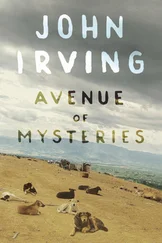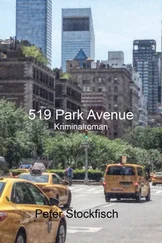I went downstairs and tapped gently on the garden-room door. I thought I heard movement, so I waited, then knocked again.
“Sleepyheads.”
Since there was no answer I cracked open the door. Daylight and fresh air streamed in. I stuck my head into the deep, low-ceilinged room. The beds were empty, the covers crumpled in a heap, one of the doors to the yard stood wide open. I went in, picked up a wet towel from the pinewood floor. The bathroom was deserted as well, the halogen spots above the washbasin were still on and tepid water trickled from the showerhead. While I scanned the wet floor for Timo and my sister, as though they had shrunk to the size of Q-tips, I realized they had been gone for hours.
Although morning rush-hour traffic on Sunset Boulevard was lighter than usual, I still managed to nearly rear-end the Chevrolet in front of me a couple of times. The memories of Janis threw me off — but not as much as those of Aaron Bever . During breakfast I happened to check an old Hotmail address, an account I used to buy and sell shoes and dresses on eBay, and was flabbergasted to stumble on a three-week-old e-mail from Aaron. It gave me a real shock. There are certain people who are out of the picture for so long that it’s like they no longer exist. Aaron? Uh-oh . My first reaction was: trash it, so I sent the message straight to the wastebasket unread. I was never one for maintaining old contacts, but since that weird visit from my sister I had written off Enschede and all its ghosts once and for all. I left Holland in 2000, I didn’t follow the news, had no contact with Dutch people, and after leaving Boudewijn and Mike didn’t even speak the language anymore. My links to the mother country had been severed. And I wanted to keep it that way.
So in that sense it was a good thing there was big news waiting for me on Coldwater Canyon Avenue. Even before I closed my office door behind me, reception put me through to Víctor Sotomayor’s assistant. What I was hoping for, what we all had been hoping for the past week, happened: the sale went through, there was a deal, for $16.3 million we could call ourselves the owners of the Los Angeles Barracks. Woohoo, party time.
Rusty stormed in and kissed me like it was New Year’s Eve, and five minutes later we were standing there in the old lobby, all fifty of us, drinking a toast to our new premises. Rusty, who had nudged me up the staircase a couple of steps, reached over to refill my glass at least three times from one of the gold bottles of champagne we’d been keeping chilled all week. “Here,” he roared in his nasal West Coast Irish accent, “in return for all the sleepless nights you’ve cost me.” Then he drew everyone’s attention to me. “Friends,” he declared nervously, “a toast to us . A toast to the success of the Barracks. A toast to future colleagues. But first and foremost, a toast to Joy. This amazing woman here”—he shook my hip with his free hand, so that I had to grab the wobbly wooden banister for support—“has put us, shall I say, on the cutting edge.”
He then nearly pulled me off the stairs and, in addition to two kisses, gave me the floor. Speeches still made him panicky, even after all his years as company director. It really was something, all those faces looking up at me. Cameramen, directors, make-up artists, the IT folks, a few actors in white bathrobes with half-made-up faces. Dedicated, loyal, eager, often decently educated loners, packed together into the wood-paneled lobby of our creaking Victorian manor house in the middle of Studio City (which Rusty, ever since I wanted to leave and he didn’t, insisted on calling “Hollywood”). I explained to them one last time why the L.A. Barracks was going to make the difference. I repeated my promise that a year from now we would be the world’s biggest player. And I have to admit: it felt like a personal triumph, I had pulled this off single-handedly, and for a whole hour I didn’t give Aaron’s live grenade a moment’s thought. I was tickled pink that I had managed to get not one, but two pig-headed men — Rusty himself, and then Sotomayor on top of it — to listen to me.
Of course, the whole thing still gave Rusty pause; $16.3 million was, even for Rusty Wells, a shitload of money, tenfold his biggest investment ever. “Joy,” he would sigh when, at the end of a workday, I launched into my umpteenth sales pitch for the Barracks, “do you realize how much I love Hollywood? And do you have any idea what it means for a boy from Belfast to earn his living a stone’s throw from MGM?” “You want a tissue?” I would answer, knowing full well we were not hurting for money. This old pile, built in the late nineteenth century by British immigrants who for decades had run it as a family hotel, had charm; its twenty-four irregularly shaped rooms were spread over three uneven, staggered, moldy-smelling floors. Jade-green lampshades hung in the hallways like floppy turbans, the reception desk shone like a Steinway, the lobby gave you the impression that Paul Newman and Robert Redford were somewhere upstairs smoking cigars in a clawfoot bathtub. Rusty had shelled out a million bucks for it back in 2001 and brought in a motley nine-man crew who sort of knew how to put a film together. But that was then. Nowadays the gray-slate roofs and blue-painted bay windows nearly caved in when all fifty of us turned on our PCs at once. It was time to move on, and Rusty knew it.
“But why a feckin’ 200,000-square-foot fortress?” he asked. “And why for twice our feckin’ 2007 profit? Last year we earned just under eight million — eight, Joy, not eighteen . And why in feckin’ Compton, of all places? You want us all dead? Why a historical landmark ? Why a listed monument? You want to spend your time squabbling with sixteen amateur historians? You want to start a fight with half of the goddamn city council ?”
When we decided to become business partners back in 2003, we made a deal: we can fight, we should fight, but with a twenty-four-hour limit. After that we’d get out and earn money again. About three weeks ago we rented a squash court out on Irving Drive, we do that now and again, with the agreement that for forty-five minutes we wouldn’t talk business. But this time we were at each other’s throats about the Old Barracks before the ball even got warm. The same old argument. Our CEO and founder stood there in his faded Guinness T-shirt, milk-bottle legs spread, clutching his racket like a dagger in his freckled fist, hollering: and I’m damned if I’m gonna shell out twenty million for a cinder block spook house, and I don’t need my face in the L.A. Times , and I didn’t sell you shares only for you to turn around and bankrupt me. It was the first time since we’d teamed up that we were on totally opposite sides of the fence.
Although I had seen the eruption coming, I was still taken aback. The often costly changes I’d been allowed to make over the past few years attested to Rusty’s confidence in my business sense. I had taken the initiative to shift us from one large to six more specific websites, gradually of course, but with resounding success. I was the one who insisted on buying better cameras and investing in faster connections, so our film sets were now technically on a par with the big Hollywood and Burbank studios. He had given me carte blanche in recruiting personnel. And not only the creatives: when I suggested hiring marketing people, a controller, and even a personnel manager to draw up pension and health care plans, he didn’t flinch. Since then our profits had risen from a piddly under three million to last year’s eight.
Squash courts are ingeniously designed kill traps: you can’t get out, no one hears you, the light is merciless. I needed to find his weak spot, and in his case that was Europe. “Wells,” I said, no longer as restrained as during the past month of arranging my arguments like a floral bouquet, “you are so conservative, you are so slow, you have no guts — what are you, a European?” Rusty enjoyed taking the occasional fifteen minutes to lambaste the big multinationals from what he called the “olde worlde economy”: Shell, Barclays, Renault, Total, the same old list from his days at Goldman Sachs, and the same old pseudo-intellectual explanation that probably was based on some or other rule of thumb and that he presented with such aplomb that you didn’t know if he was serious or pulling your leg. Rusty, sitting on the edge of his desk like a guru as he raked the European business world over the coals.
Читать дальше












